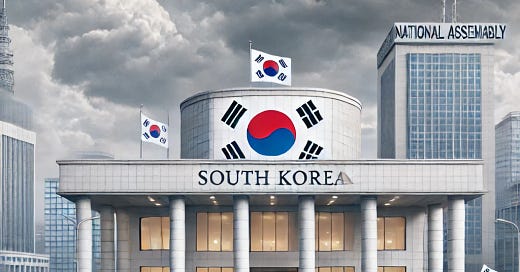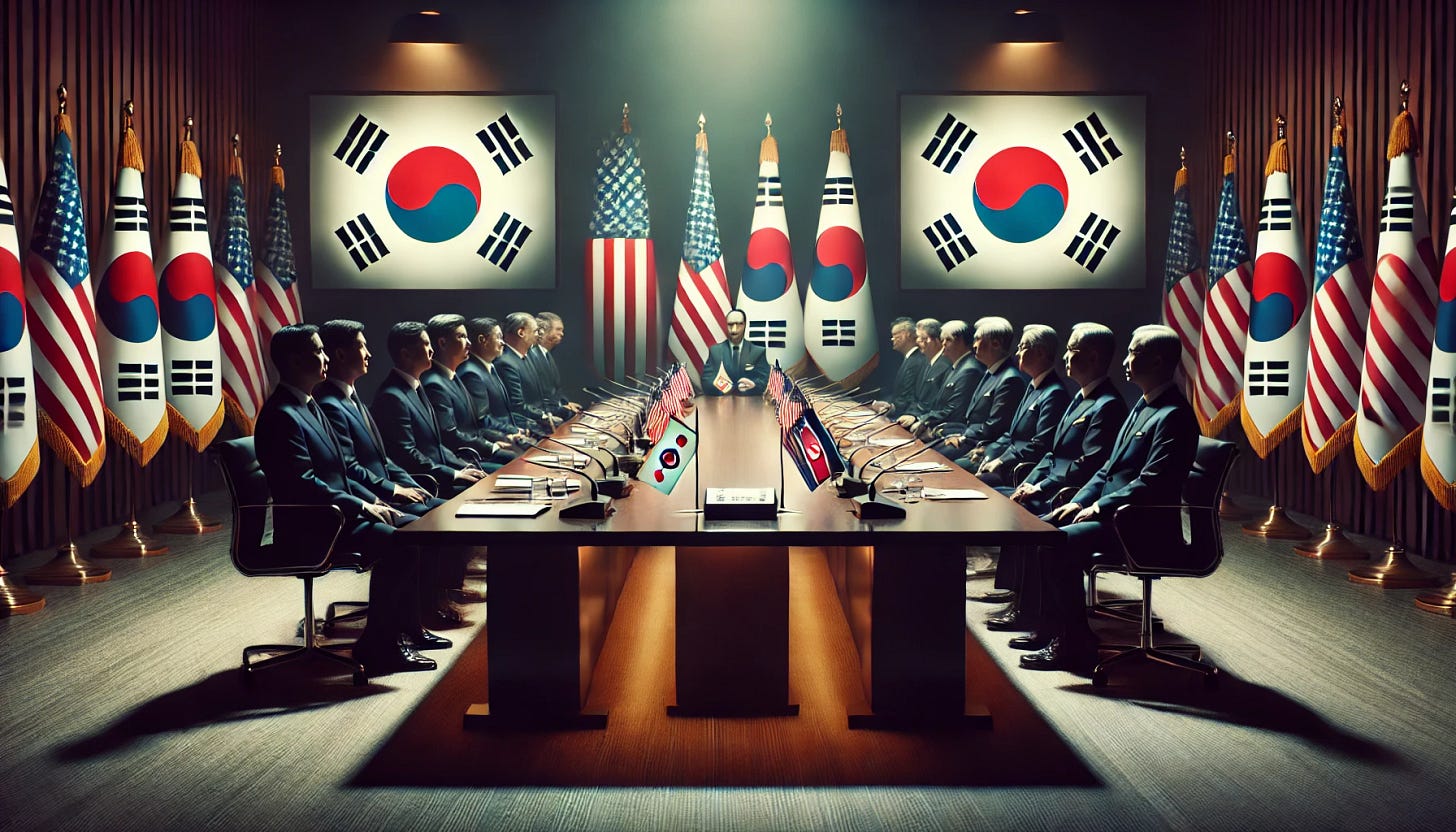"South Korea on the Brink: Why Martial Law Was Declared, What Happened Next, and How It’s Shaking the Global Economy"
South Korea’s Political Turmoil: Martial Law, Impeachment, and Economic Repercussions
The Martial Law Declaration: A Desperate Gamble
On December 3, 2024, South Korean President Yoon Suk Yeol shocked the nation by declaring martial law, citing threats to national security and accusing the opposition Democratic Party of anti-state activities. This drastic measure came amid growing political tension as opposition lawmakers sought to impeach senior government officials and block key budget proposals. Yoon claimed the move was necessary to preserve stability, but critics saw it as a blatant power grab aimed at undermining the constitution and democratic norms.
Yoon’s decision was met with immediate resistance from lawmakers and civil society. Within hours, the National Assembly convened an emergency session and voted to nullify the decree, forcing Yoon to retract the order. This swift action highlighted the deep divisions within the government and the fragility of Yoon’s support base. The incident also drew comparisons to South Korea’s dark history of military rule, with many fearing a return to authoritarianism. Calls for Yoon’s resignation or impeachment soon followed, signaling a brewing political crisis.
Political Backlash and Impeachment Threats
The backlash against Yoon’s martial law declaration was both swift and severe. Opposition leaders, led by the Democratic Party, condemned the move as unconstitutional and accused Yoon of attempting to subvert democracy. Park Chan-dae, a senior Democratic Party lawmaker, vowed to pursue impeachment if Yoon did not step down voluntarily. The president’s political isolation became evident as even some members of his conservative People Power Party distanced themselves from the decision.

Impeachment proceedings, if initiated, would mark the second such attempt against a South Korean president in recent years, following the impeachment of Park Geun-hye in 2017. Legal experts argue that Yoon’s actions may constitute a breach of his constitutional duties, providing grounds for removal. The political turmoil has raised questions about the stability of Yoon’s administration and its ability to govern effectively in the face of mounting opposition and public discontent.
Economic Fallout and Market Reactions
The declaration of martial law had immediate repercussions for South Korea’s financial markets. The Kospi index tumbled 2% at the opening of trading, reflecting investor anxiety over the sudden escalation in political risk. Although the index recovered slightly by the end of the day, the initial shock underscored the market’s sensitivity to political instability. The South Korean won also experienced significant volatility, hitting a two-year low against the U.S. dollar before stabilizing.
Economists warn that prolonged political uncertainty could dampen investor confidence and slow economic recovery. South Korea, a major exporter of semiconductors and technology products, plays a critical role in global supply chains. Any disruption to its economy could have ripple effects on global markets, particularly in sectors reliant on South Korean components. While some analysts predict the market impact will be short-lived, the potential for a drawn-out impeachment process adds an element of unpredictability to the economic outlook.
Implications for Global Geopolitics and Governance
Beyond its domestic impact, the crisis in South Korea could have significant implications for global geopolitics. South Korea is a key ally of the United States and a critical player in regional security, particularly in its dealings with North Korea. Political instability in Seoul could weaken its negotiating position and embolden Pyongyang. Additionally, strained relations with China and ongoing trade disputes add complexity to the situation, potentially affecting South Korea’s foreign policy and economic partnerships.
The crisis also raises broader questions about democratic resilience in South Korea. As one of Asia’s leading democracies, South Korea’s ability to navigate this political turmoil will be closely watched by the international community. A successful resolution, whether through impeachment or a negotiated settlement, could reinforce democratic norms. However, any perception of authoritarian overreach could damage South Korea’s reputation and undermine its standing on the global stage. The coming weeks will be crucial in determining the country’s political and economic trajectory.
Thank You for Joining the Discussion!
We’re so grateful that you’ve taken the time to explore the complex political and economic situation unfolding in South Korea. Your interest fuels our ability to bring you up-to-date, in-depth content on global events that matter most.
If you found this article insightful, we would love your support! Hit the "Like" button to show your appreciation, and don’t forget to subscribe to our platform so you can stay informed with fresh and engaging content. By subscribing, you help us grow, bringing more valuable insights directly to your feed. It’s quick, it’s free, and it helps us reach a wider audience who shares your curiosity and passion for understanding today’s world.
We’re on this journey together, and with your support, we can make a real difference in how we all engage with global events! Thanks again for being part of the community.








